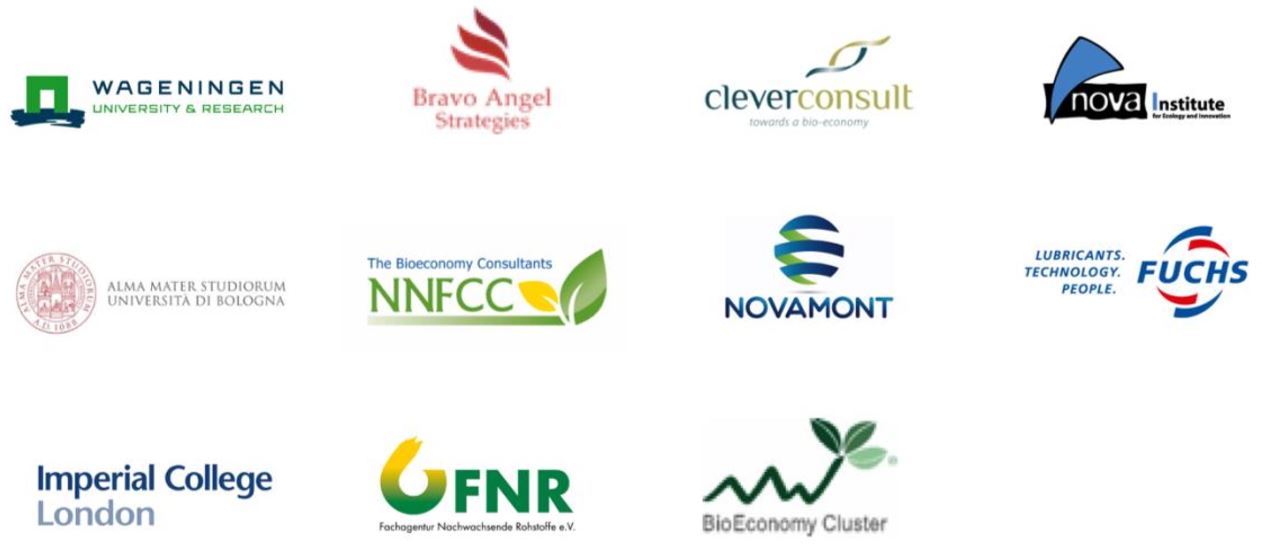Expert Survey warns effective measures are difficult to implement under the prevailing public, political and industrial conditions. The Independent Bio-based Expert Group calls upon the European Commission to seize the momentum of increasing environmental awareness and set a higher level of ambition for stronger market support measures, such as a fossil carbon or CO2 tax, to strengthen and grow a sustainable bio-based economy.
Brussels, February 17, 2020. The Independent Bio-Based Expert Group* presents the results of an expert survey on the impact and implementation of measures and instruments to stimulate the bio-based economy. The adoption of bio-based products can answer the call from the public and politicians for concrete measures from the EU and its Member States for more climate-friendly products. An enhanced bio-based economy has an important role to play in meeting the ambition of the 2015 Paris Agreement and in delivering a European Green Deal.
For over 10 years, advocates of the bio-based economy have watched, sometimes with frustration, as the sector (especially the areas of bio-based chemicals and plastics and their End-of-Life options in terms of chemical, biological and mechanical recycling), has struggled to generate market momentum. Throughout this time, the academic community and industry stakeholders have been conducting research to identify instruments and measures capable of stimulating market uptake and economic growth. The research effort has been comprehensive and exhaustive to a point where the same measures and instruments are now repeatedly identified.
In 2018, an Independent Bio-based Expert Group was founded, to bring together expert stakeholders from across Europe’s bio-based economy. Through the spring and summer of 2019, the group surveyed experienced experts from industry, associations and applied science asking which market stimulation measures they considered to be highly effective, easy to implement or likely to be implemented. Both the experts of the group as well as additional stakeholders from the group’s community participated in the survey.
The first question on the survey was “Which measures could potentially have a high impact on the bio-based economy?” and resulted in very uniform answers. The experts were in clear agreement that the strongest and most effective measures could significantly move the biobased economy forward, these key measures were: a fossil carbon tax, a CO2 tax, quotas, tax credits, removal of fossil subsidies and, mandates and bans.
The second question was “How difficult is the technical implementation of the measures?” Here, there was a top group of five measures which, in the opinion of the experts, can be implemented comparatively easily: certificates, labels, networks, self-commitments and public awareness. However, these are all soft measures, which can be considered enablers or supporters, and which alone would only have a minimal impact on market growth. The Independent Bio-Based Expert Group interpreted this to mean that only soft measures are regarded as easy to implement in the current political climate – this is indeed reflected in the high number of activities currently taking place in these areas.
The third and final question was: “How probable is the implementation of these measures in today's public, political and industrial context?” On this question the experts were very much in agreement, too. Five measures (standards, certificates, labels, networks and public awareness) were considered very likely to be implemented – indeed some of these have already been implemented and are part of ongoing projects or tenders. All of these are soft measures, again rather enablers/supporters, which alone cannot drive the transition towards a bio-based economy – and which need the stronger measures to be implemented along with them, to have a significant impact.
Michael Carus of the nova-Institute commented that the overall result of the expert survey suggests that there exist strong measures that could be implemented in order to advance the bio-based economy. And the experts even agree on what these measures are: Fossil carbon tax, CO2 tax, quotas, tax credits, removal of fossil subsidies, and mandates and bans. Furthermore, Mr Carus points out: “Unfortunately, the experts worry that these effective measures would be difficult to implement under the prevailing public, political and industrial conditions, and warn that they are unlikely to be implemented in the near future if the Commission doesn’t take action now.”
The Independent Bio-based Expert Group therefore calls upon the European Commission to increase the level of ambition and take action on the multiple recommendations made by this expert group and its predecessors for an enhanced bio-based economy, to strengthen and grow a sustainable bio-based economy. The group is convinced that the bio-economy should play an important role in achieving the Paris climate goals and in the Green Deal – above all to replace fossil carbon with renewable carbon and also to be able to utilise the large biogenic material flows in the countryside and in the metropolitan regions. The survey has shown which measures are necessary and possible. The members of the Independent Biobased Expert Group hope that the importance of the bio-economy and the adequate measures to implement it will become an important part of Green Deal.
Signatories of the press release:
- Christiaan Bolck, Wageningen University and Research (WUR) (NL)
- Ana Maria Bravo, Bravo Strategies (BE)
- Dirk Carrez, Cleverconsult (BE)
- Michael Carus, nova-Institut (DE)
- Paola Fabbri, University of Bologna, (IT)
- Adrian Higson, NNFCC The Bioeconomy Consultants (UK)
- Emmerik Lucchini, Novamont (IT)
- Rolf Luther, FUCHS (DE)
- Calliope Panoutsou, Imperial College (UK)
- Andreas Schütte, Fachagentur Nachwachsende Rohstoffe (FNR) (DE)
- Matthias Zscheile, BCM BioEconomy Cluster Management (DE)
